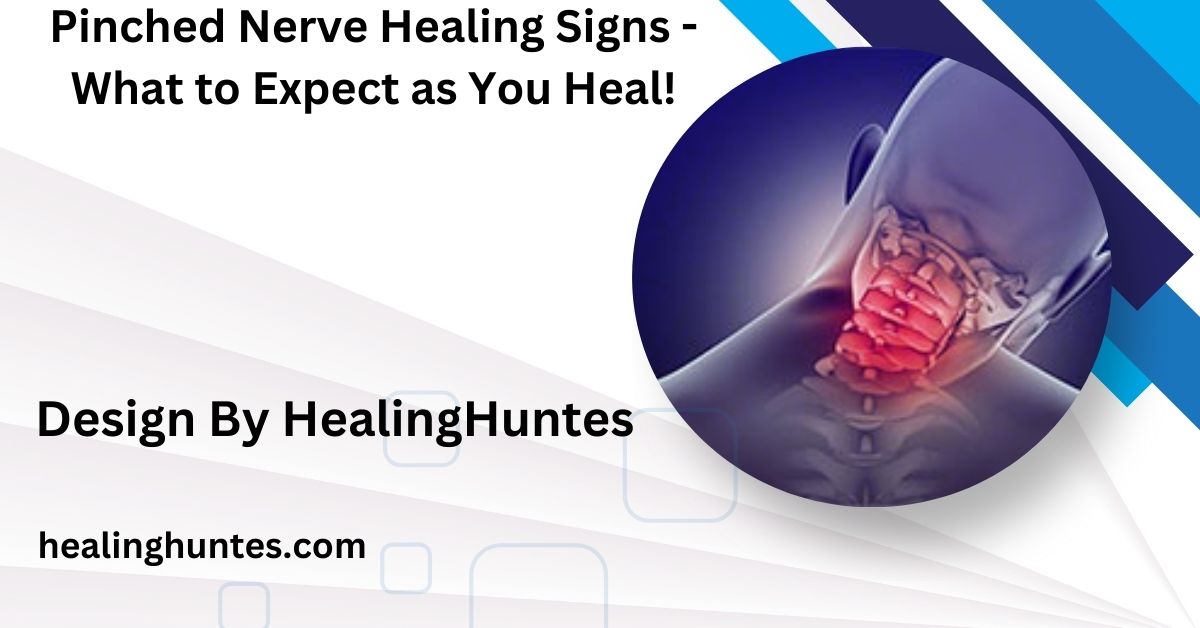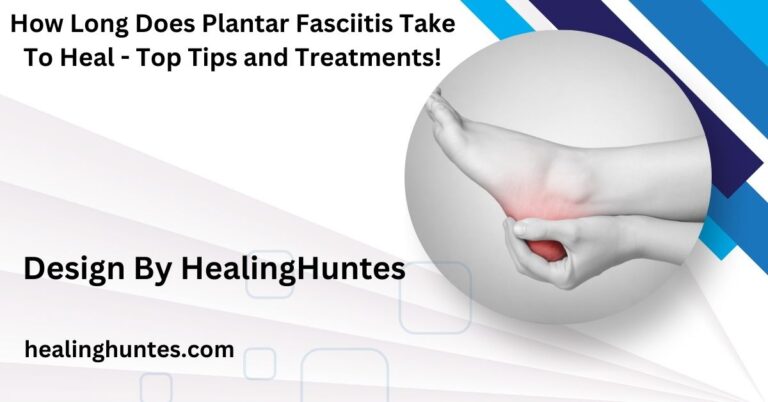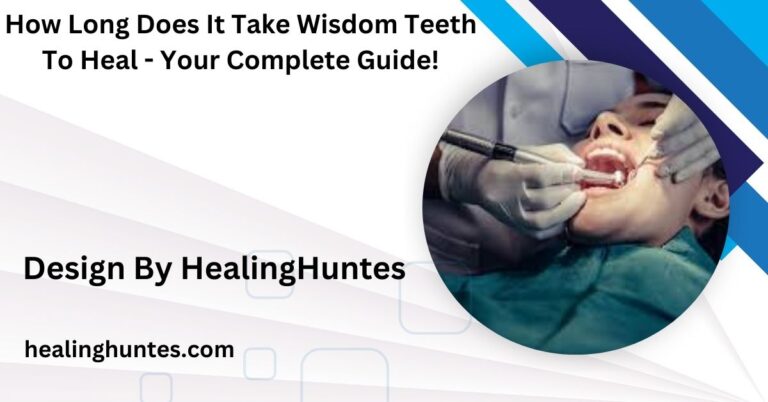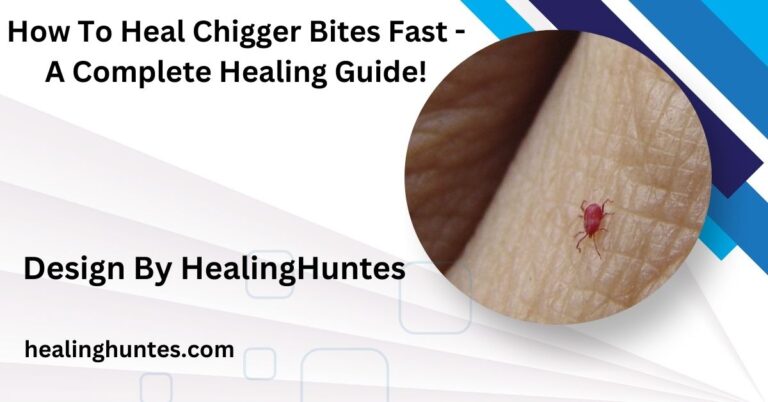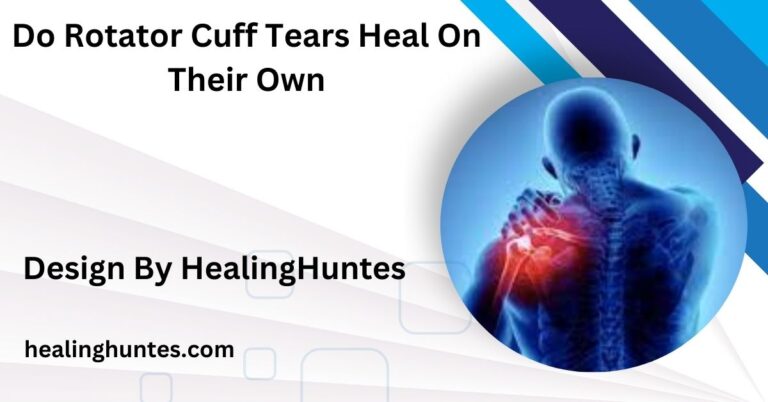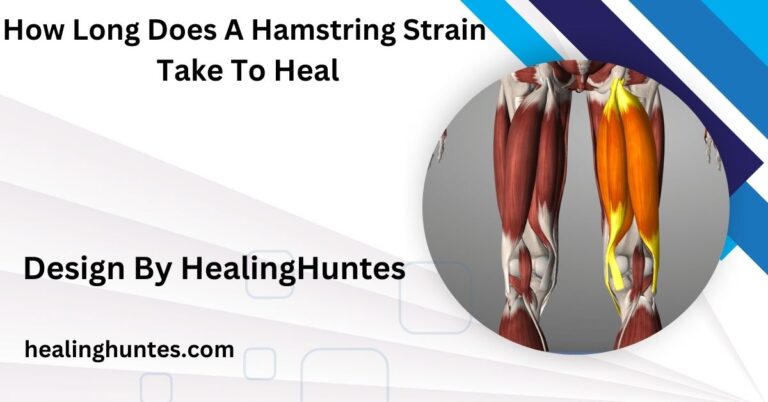Pinched Nerve Healing Signs – What to Expect as You Heal!
A healing pinched nerve is typically indicated by reduced pain, improved mobility, and the diminishing of tingling or numbness.
In this article, we’ll explore the common healing signs of a pinched nerve, tips for managing symptoms, and how to speed up the recovery process.
What is a Pinched Nerve:

A pinched nerve, also known as a compressed nerve, can happen in various areas of the body, including the spine, neck, or wrists. The most common causes of a pinched nerve are poor posture, repetitive movements, or injury. When the nerve is pinched, it causes symptoms like pain, tingling, or weakness in the affected region. Understanding the nature of this condition is key to recognizing when it’s healing.
Signs That a Pinched Nerve is Healing:
As a pinched nerve heals, you may notice a gradual reduction in pain, less tingling or numbness, and improved flexibility and strength in the affected area. These signs indicate that the nerve is recovering. However, full recovery can take time and may require proper rest and treatment.
Decreased Pain and Discomfort:
One of the most noticeable signs that a pinched nerve is healing is the reduction in pain. Initially, the pain may be sharp or shooting, but as the nerve begins to recover, the discomfort should lessen. Over time, this pain will become less intense and more manageable, signaling that the healing process is underway.
Also Read: Time To Heal Broken Ankle – A Comprehensive Guide!
Improved Mobility and Range of Motion:
As the nerve heals, you may notice that your range of motion improves. For example, if a pinched nerve affected your neck or back, you may gradually regain the ability to move without stiffness or discomfort. This is an encouraging sign that the pressure on the nerve is easing and the healing process is progressing.
Reduced Tingling and Numbness:
Tingling or numbness is a common symptom when you have a pinched nerve. However, as the nerve heals, these sensations should decrease. The absence or reduction of tingling is a positive sign that the nerve is no longer being compressed, and your nervous system is beginning to function properly again.
Strength Restoration:
A pinched nerve can lead to weakness in the muscles connected to the affected nerve. As the nerve heals, you should start to regain strength in the weakened muscles. This restoration of strength is often gradual, but it is an essential sign that the nerve is recovering and reconnecting with the muscles and tissues it controls.
How Long Does It Take for a Pinched Nerve to Heal:

The healing time for a pinched nerve varies depending on the severity of the condition, its location, and how well the body responds to treatment. In general, mild cases of pinched nerves may take a few weeks to heal, while more severe cases may take months. During this time, it’s essential to follow medical advice, avoid aggravating activities, and consider physical therapy or lifestyle changes to speed up recovery.
Tips to Speed Up the Healing Process:
To speed up the healing process of a pinched nerve, make sure to rest the affected area, avoid activities that strain the nerve, and incorporate gentle stretches or physical therapy. Applying ice or heat can help reduce inflammation, while staying hydrated supports tissue repair. Consulting a healthcare professional is essential for targeted treatment.
Rest and Avoid Overuse:
Rest is one of the most effective ways to promote healing. Avoid any activities that could exacerbate the pressure on the nerve, such as lifting heavy objects or performing repetitive motions. Giving your body time to rest will help reduce inflammation and facilitate recovery.
Also Read: Signs A Fissure Is Healing – Healing Fissure Symptoms!
Apply Heat or Cold Therapy:
Using heat or cold therapy can be very beneficial in alleviating pain and reducing inflammation. Cold packs can help numb the area and reduce swelling, while heat can increase blood flow to the affected region, promoting healing. It’s important to apply these therapies according to your symptoms and comfort level.
Stretching and Light Exercise:
While rest is important, gentle stretching and light exercises can help improve circulation, strengthen muscles, and prevent stiffness. Be sure to consult a healthcare provider before engaging in any physical activity to ensure you’re doing it safely and effectively.
Use Medications and Supplements:
Over-the-counter pain relievers like ibuprofen or acetaminophen can help reduce pain and inflammation associated with a pinched nerve. Additionally, certain supplements, such as magnesium or vitamin B12, may support nerve health and accelerate healing. Always talk to your healthcare provider before adding any new treatments to your routine.
Prevention Tips to Avoid Future Pinched Nerves:
Preventing a pinched nerve involves maintaining good posture, avoiding repetitive movements, and engaging in regular stretching or strengthening exercises. Staying active and practicing proper ergonomics at work or while exercising can help minimize your risk of developing a pinched nerve in the future.
FAQ’s
1. What are the first signs of a healing pinched nerve?
The first signs of a healing pinched nerve are reduced pain, improved mobility, and a decrease in tingling or numbness in the affected area.
2. Can a pinched nerve heal on its own?
Yes, many mild pinched nerves can heal on their own with rest, proper care, and lifestyle adjustments. Severe cases may require medical treatment or physical therapy.
3. How long does it take for a pinched nerve to heal completely?
Healing time varies, but mild pinched nerves typically improve within a few weeks. Severe cases can take months to fully recover.
4. Is it okay to stretch if I have a pinched nerve?
Gentle stretching can be beneficial for relieving tension and promoting healing, but you should always consult your healthcare provider before starting any exercise routine.
5. Can I prevent a pinched nerve from happening again?
Maintaining good posture, staying active, and avoiding repetitive movements are key to preventing future pinched nerves.
Conclusion
Recognizing the signs of a healing pinched nerve is essential for understanding your recovery process and knowing when to return to normal activities. By paying attention to pain levels, mobility, tingling sensations, and muscle strength, you can gauge your progress and make adjustments as needed. With patience, proper treatment, and self-care, most pinched nerves heal completely, allowing you to live without discomfort. If you’re unsure about your symptoms or recovery process, don’t hesitate to consult with a healthcare provider to ensure you’re on the right track.
